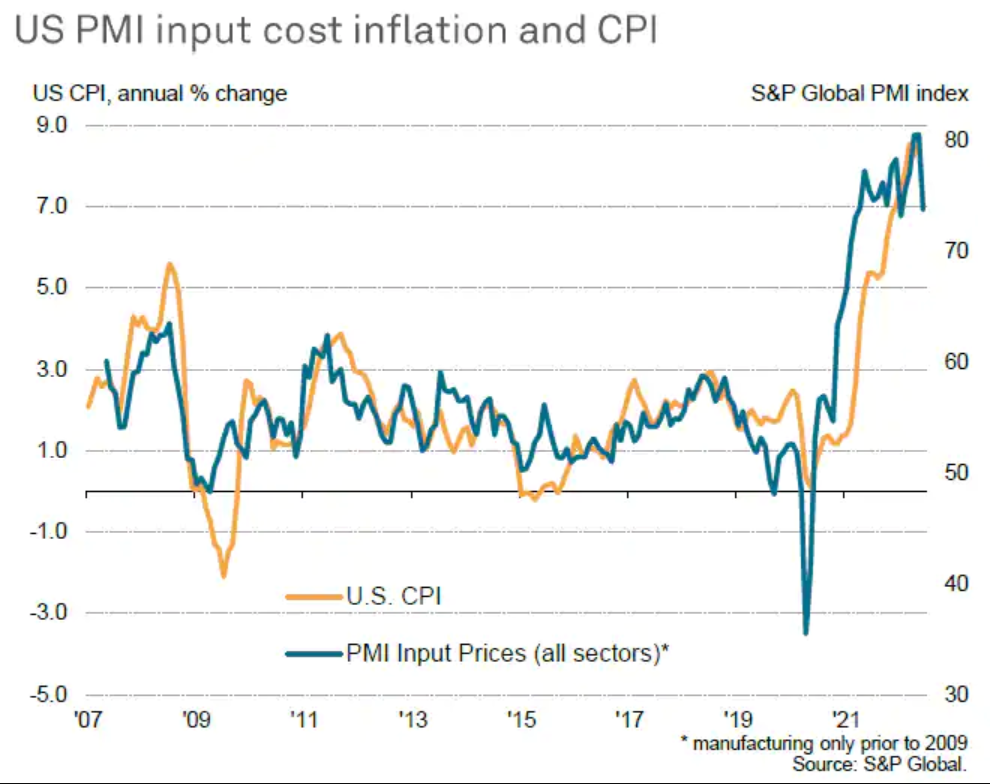Wall Street is on track for one of its worst years yet on record as the Federal Reserve hikes interest rates to combat 40-year high inflation, increasing the likelihood of a recession.
The Dow Jones Industrial Average is down 14.6% year-to-date (ytd), while the benchmark S&P 500 and the tech-heavy NASDAQ are off 19.3% and 27.4% ytd respectively.
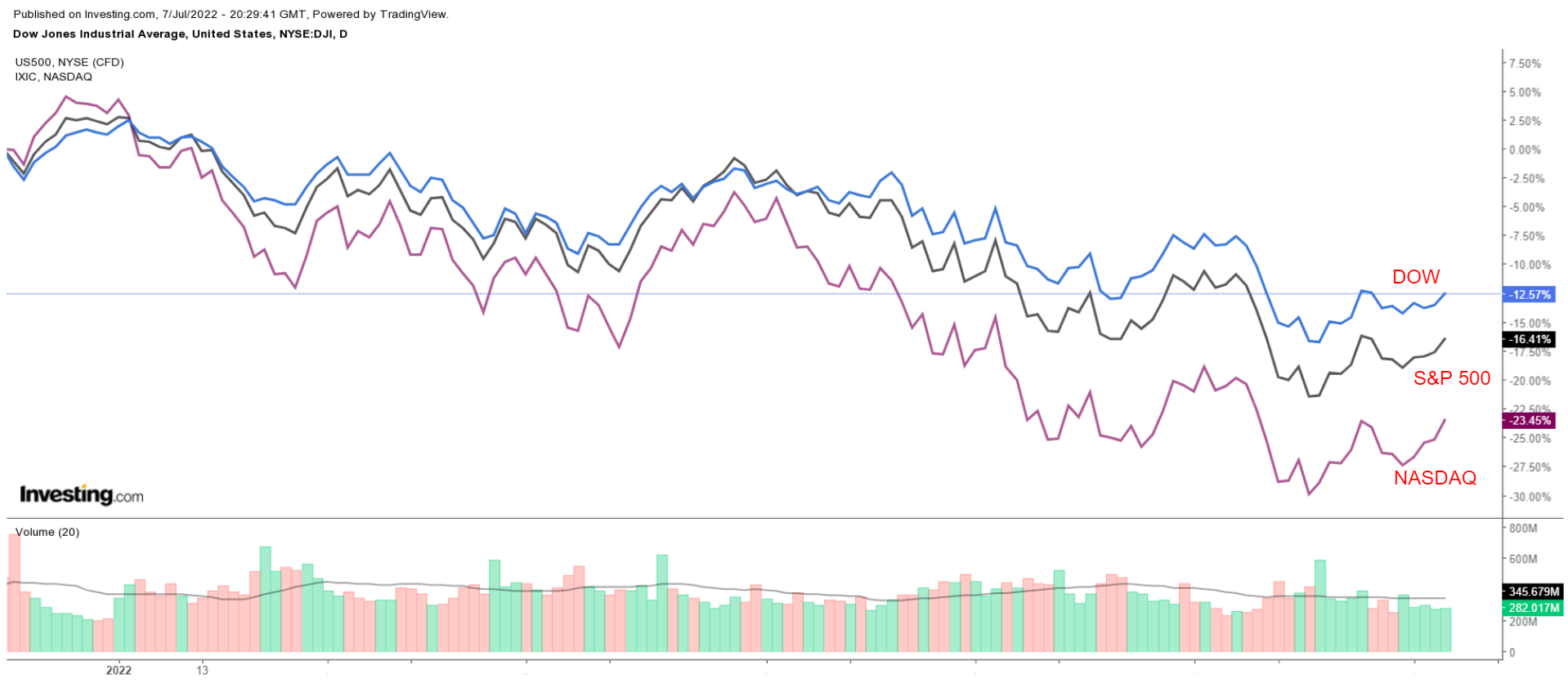
But there is some good news. Recent inflation data revealed that the rate of increase has moderated. The core personal consumption expenditures price index, which excludes food and energy prices and is the Fed's preferred metric for measuring underlying inflation trends, was 4.7% yoy in May, marking a deceleration from the 4.9% rate in April.
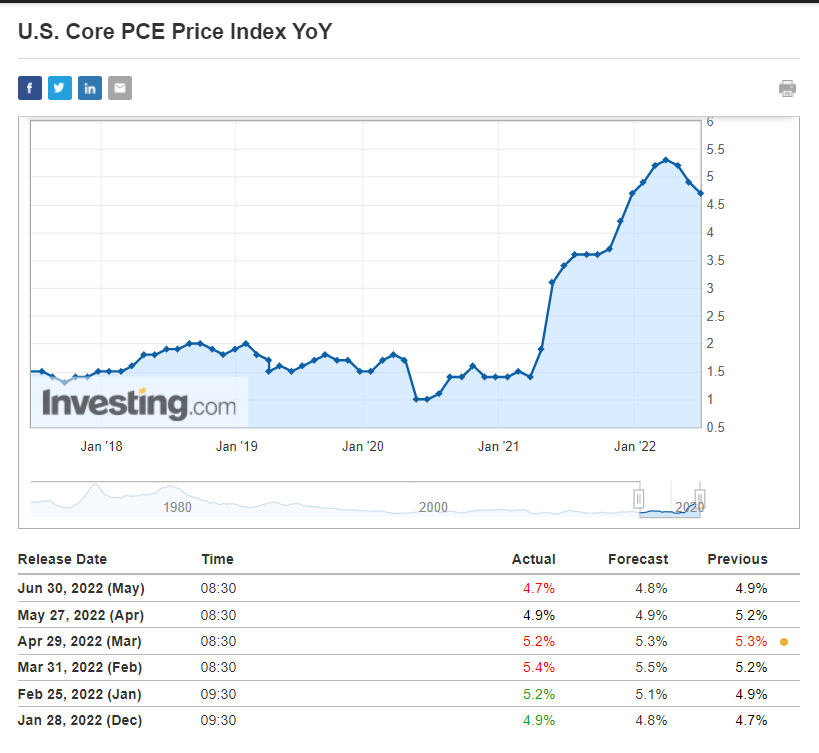
The reading has slowed for three months after peaking at 5.4% yoy in February.
Indeed, signs are mounting that inflation has peaked and will decelerate further.
Falling Gasoline Prices
Record-high gas prices have significantly contributed to the rise in inflation. But gasoline futures are down more than 20% since June, stirring hopes that the sky-high price of gas across the U.S. will continue to slide.
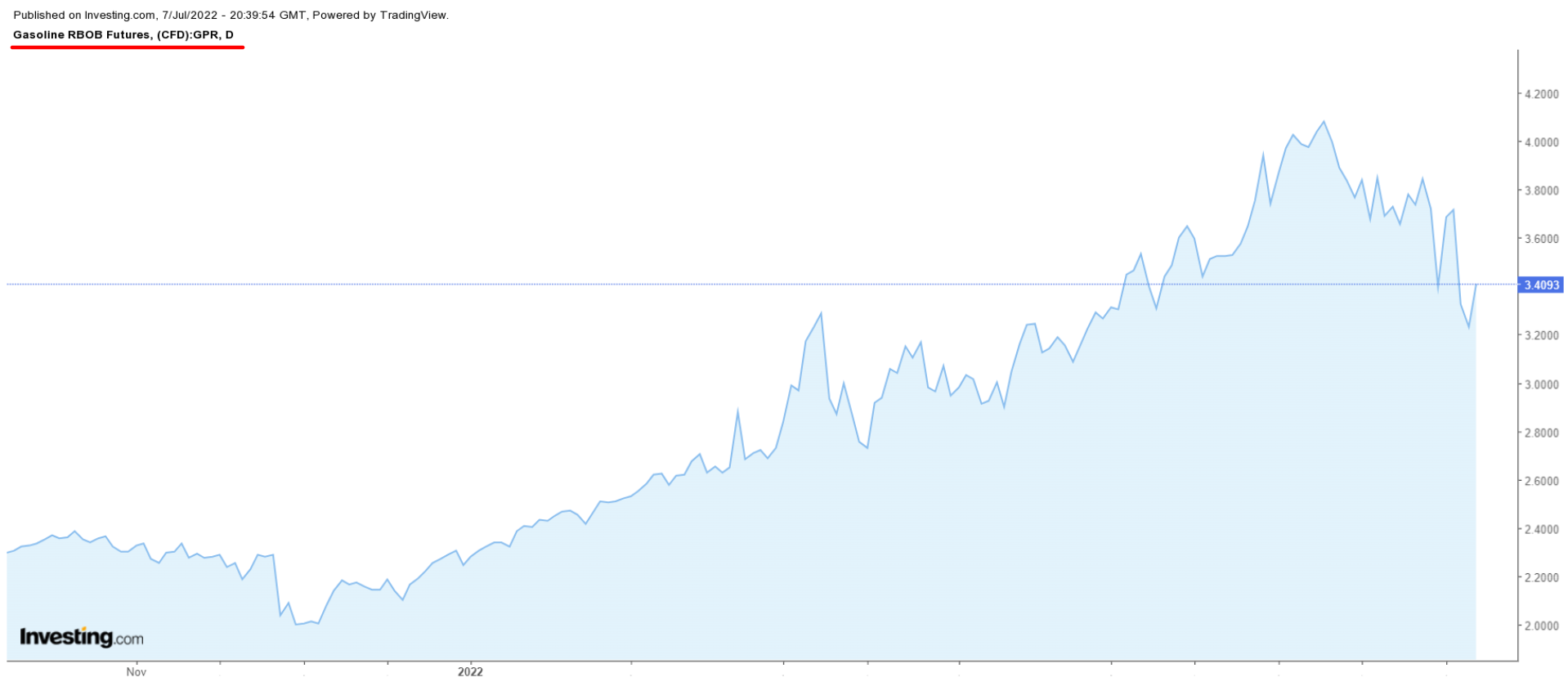
According to AAA, the national average gas price stood at $4.752 a gallon as of Thursday, down from the all-time high of $5.016 a gallon on June 14 and the drop in crude oil prices will likely lead to more relief at the pump.
Barring an unexpected surge in crude prices, gas could drop by an additional 60 cents to about $4.15 a gallon by mid-August.
Oil Drops Back Towards $100
Crude oil briefly fell below $100 per barrel earlier this week for the first time since April, underlining hopes inflationary pressure is starting to ease. On Tuesday it traded at $95.10, 26% lower than its high of over $130 on March 7. Prices have since staged a modest rebound but remain well off recent peaks.
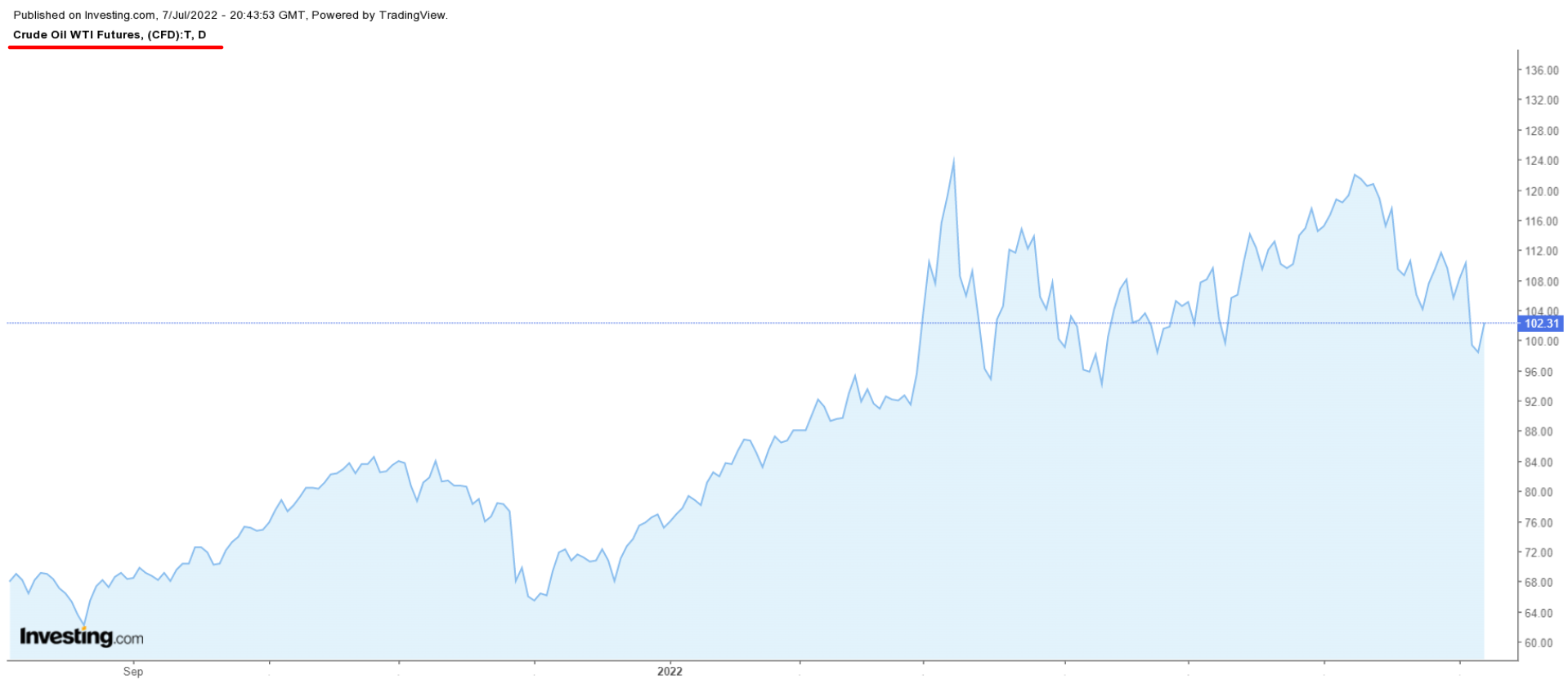
Citibank is projecting that if the U.S. economy enters a recession, oil prices could drop to $65 per barrel this year and $45 per barrel next year.
Commodities Are Sinking
Prices of wheat, corn, soybeans, and oats have plunged since reaching all-time highs. They are now trading below the level they were at before Russia invaded Ukraine in March, providing further evidence that food inflation is moderating.
Other agricultural commodities, such as cotton, sugar, coffee, and cocoa futures, are all down at least 20% from their recent peaks.
Additionally, copper, nickel, iron ore, aluminum, and lumber are all trading near their lowest levels since 2020.
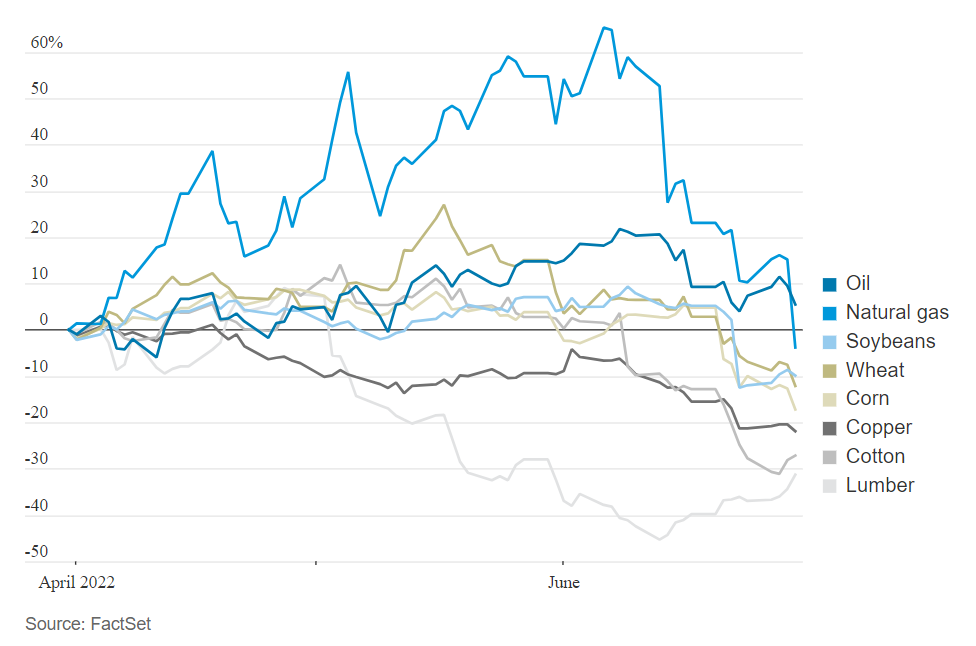
Deutsche Bank analyst Jim Reid wrote in a note on Wednesday that:
“[A] rolling 20-day move in [Deutsche Bank’s] commodity index is now seeing around the third-largest decline in 90 years.”
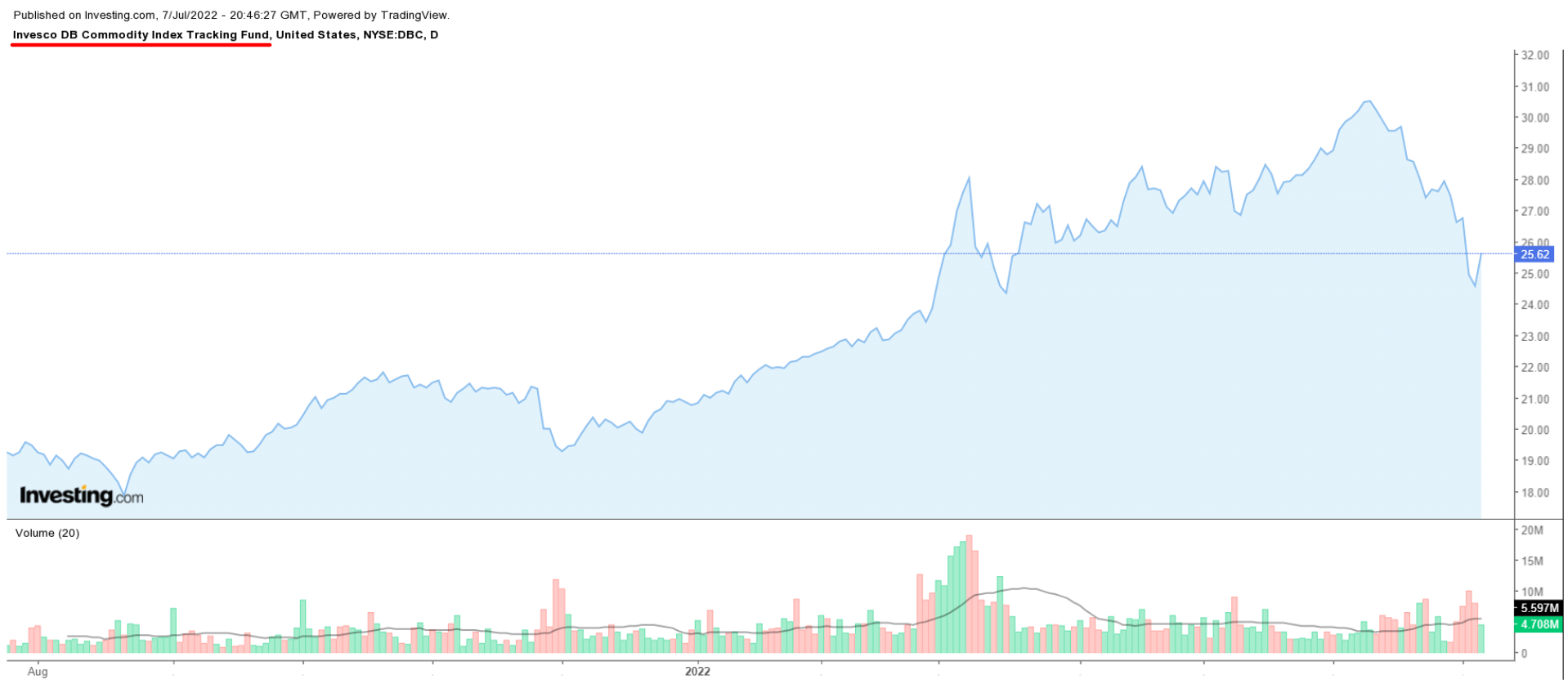
Easing Global Shipping Rates
Ongoing improvements in global supply chains and easing shipping rates will also likely help inflation abate in the months ahead.
The Baltic Exchange’s main sea freight index, which tracks rates for ships carrying dry bulk commodities, is down almost 40% from its recent high in May, indicating weak demand across all vessel segments. It is hovering around its lowest levels since early April.
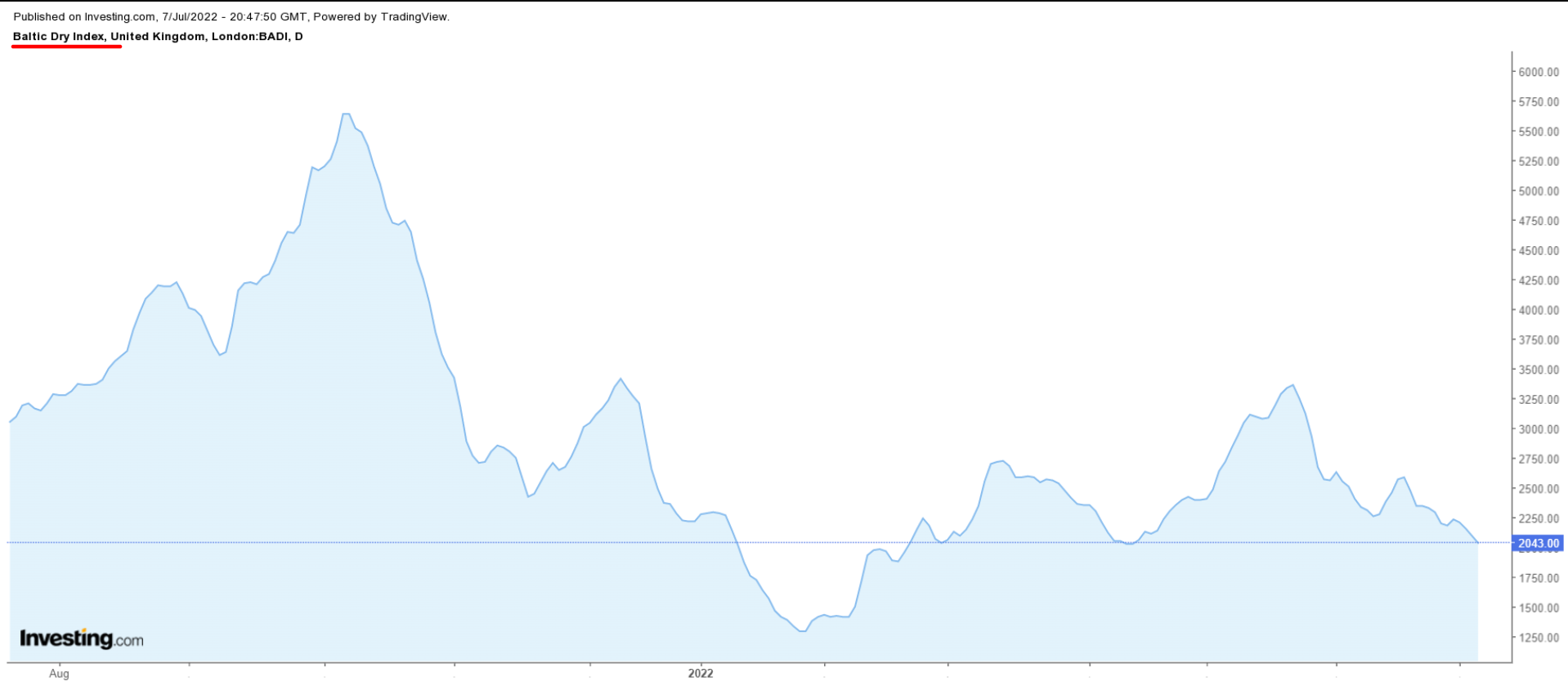
Collapsing Input, Output Costs
According to the latest release of the IHS Markit PMI survey, input cost and output price inflation rates eased in June.
The increase in both manufacturing and service sector costs was sharply lower than May’s all-time high, and the weakest reading since February.
The reduced rate of increase in input costs bodes well for CPI, given the close historical correlation between the two indices.
